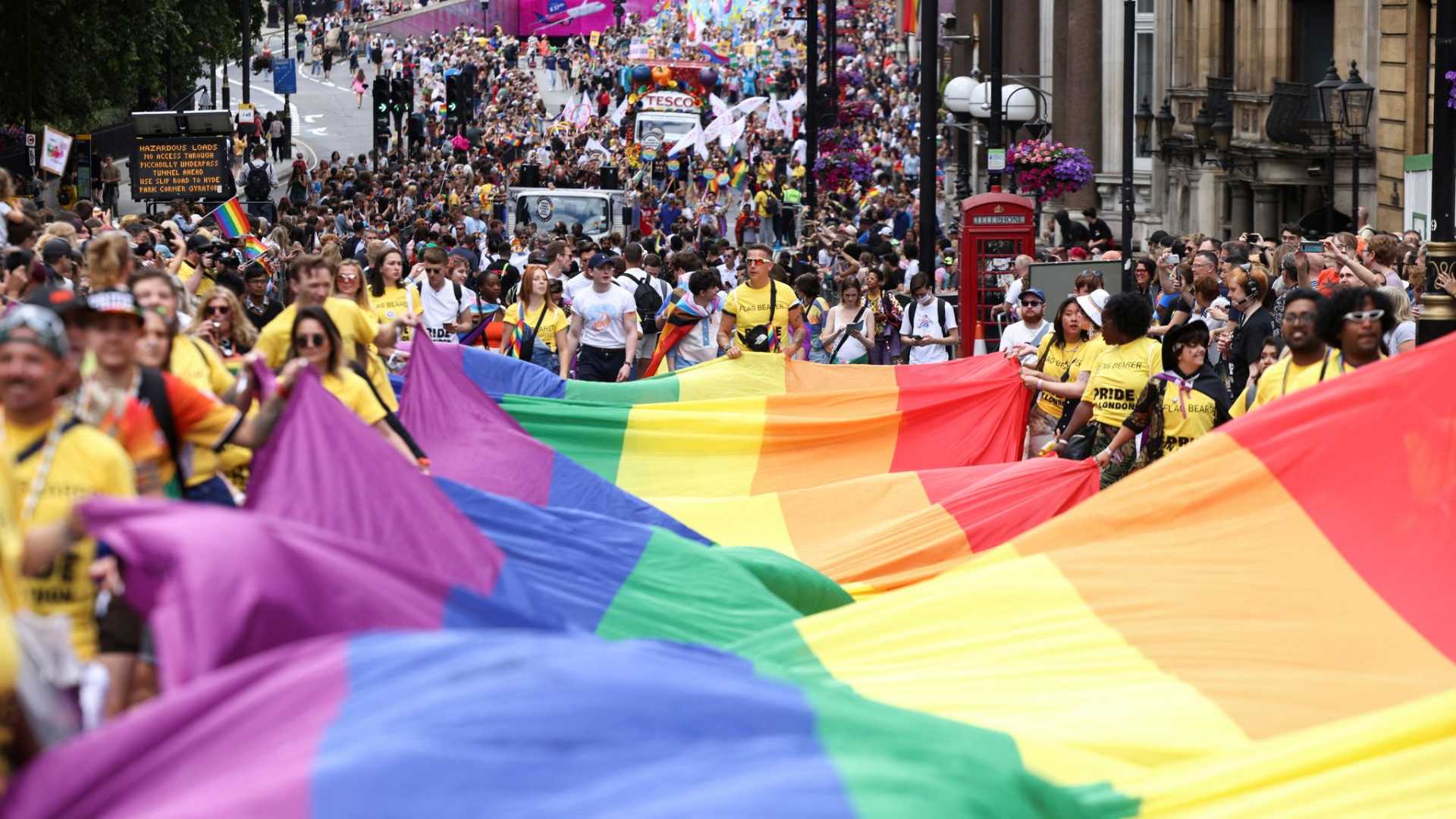News
Pride in London Faces Funding Crisis Amid High Attendance

London, England – More than one million people are expected to attend Pride in London this Saturday, the UK's largest LGBTQ+ event. Despite the massive turnout, organizers are concerned about the future of the event due to declining funding and volunteer numbers.
According to a survey by the UK Pride Organisers Network (UKPON), over 85 Pride organizations reported a drop in corporate sponsorships. This situation threatens many events across the country, with some already canceled or scaled back, while others are now charging for previously free events.
The UK Pride movement began in 1972, initiated by the Gay Liberation Front (GLF) to promote celebration alongside protest. Back then, same-sex affection could lead to arrest. Today, Pride events around the world blend protests with celebrations of the LGBTQ+ community.
Dee Llewellyn, volunteer chair of UKPON and head of partnerships for Pride in London, noted that U.S.-based international corporations have cut Diversity, Equity, and Inclusion (DEI) funding, leading to reduced donations. She remarked, “There's an old saying, if America sneezes, then the UK catches a cold, and I think we're really feeling that right now.”
Despite the financial hurdles, Pride in London remains a key event, attracting 1.5 million attendees in recent years. The cost for the upcoming 2024 event is estimated at £1.7 million, a significant figure reflective of health and safety requirements, including security and road closures.
UKPON recently surveyed its 201 members about their financial challenges. Of the 112 organizations that responded, many faced operational pressures. For example, Liverpool City Region Pride announced cancellations due to rising costs, stating it was “impossible to bring Pride to Liverpool this year.”
Plymouth Pride, which typically draws 6,000-7,000 attendees, has also canceled its official event due to a £12,000 shortfall from its £35,000 budget. The chair, Alex MacDonald, expressed disappointment, stating, “Ultimately it was [grant] funding that was the make or break for us.”
Meanwhile, a smaller group called Plymouth Community Pride plans to host alternative events, demonstrating community resilience. Alex said, “We’ll hopefully come back bigger and stronger next year.”
In June, about 6,000 people attended The Pink Picnic, a community-focused event in Salford. Starting in 2011, it has become a quieter alternative to the larger Manchester Pride. In 2025, the event organizers decided to charge tickets for the first time due to a £40,000 sponsorship shortfall.
Reece Holmes, event lead for Salford Pride, called the decision to charge for tickets one of the hardest choices faced by the volunteer team. He noted that the event’s operational costs have risen sharply, highlighting the impact of economic challenges and a cautious corporate climate towards sponsoring Pride events.
Despite the financial difficulties many Pride organizations face, Dee Llewellyn remains optimistic about the movement’s resilience. She stated, “While we might go through this ebb and flow, and we’ve fallen off a cliff this year with corporate partnerships, we will find ways around that.”












